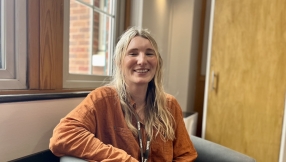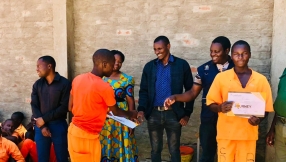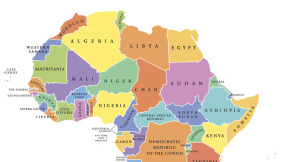'Civil Union' Bill introduced into the House of Parliament
A civil partnership bill was introduced in the House of Parliament earlier this month and the House of Lords was set to consider the legislation.
The government is proposing to introduce a form of "gay marriage". It plans to allow homosexual couples to register a "civil partnership" at a registry office. Their new legal status will entitle them to the same rights as married couples. To enter a civil partnership, couples will need to sign a register in front of a registration officer and two witnesses.
The union is similar to the responsibilities that come with marriage such that each partner has a responsibility to one another and children of the family.
However, many Christian organisations show strong opposition against the bill. The Christian Institute, a non-denominational charity established for promoting Christian faith, which have over twelve thousand supporters throughout the UK, show their responses to the "Civil Partnership":
"Civil partnership as an institution is virtually identical to marriage and would entitle the partners to the same status as a married couple, even though their relationship did not meet the same criteria, this devalues and undermines the institution of marriage. We hold traditional, mainstream Christian beliefs about marriage and sexual ethics. In our efforts to promote these beliefs, we have previously contributed to public debates on issues such as divorce law reform and gay rights."
They believe Marriage is a legal tradition based on the bible. Quoting from the book of Genesis, Jesus Christ said:
"Have you not read that he who made them at the beginning 'made them male and female' and said, 'For this reason a man shall leave his father and mother and be joined to his wife, and the two shall become one flesh'. So then, they are no longer two but one flesh.'"
Marriage has a unique status because (1) it is a relationship in which children can be naturally conceived and nurtured and (2) the adults have made an exclusive commitment to each other. Marriage law, for centuries, has simply recognised this objective reality. Homosexual couples cannot fulfil the first criteria and many, we will argue, do not wish to fulfil the second.
But creating a form of legal relationship which, legally and procedurally, mirrors marriage on almost every point, creates a form of de facto gay marriage which dispenses with this history.
Since in Christian understanding sex is exclusively for marriage, civil partnership equates holy matrimony with something which is morally wrong. This causes deep offence. Virtually all world religions would take the same view that sex is exclusively for marriage.
Civil partnership takes the privileges of marriage and gives them to couples who do not and cannot meet the requirements of marriage.
Further, we note that civil partnerships will not require monogamy or a life-long commitment. Both of these elements are present in the legal definition of marriage but there is no attempt to include them in the proposals for civil partnership. Despite this lower level of commitment in civil partnership all the privileges of marriage will attach to it.
Marriage has a proven track record of providing stability in society. Most Christian marriage ceremonies celebrate this fact and social science demonstrates it. This is especially well evidenced in relation to the bringing up of children. The Government itself, in its Green Paper on families in 1998, stated this.
Marriage is the surest foundation for raising children and remains the choice of the majority of people in Britain. There is no evidence that homosexual civil partnerships will bring the same benefits.













